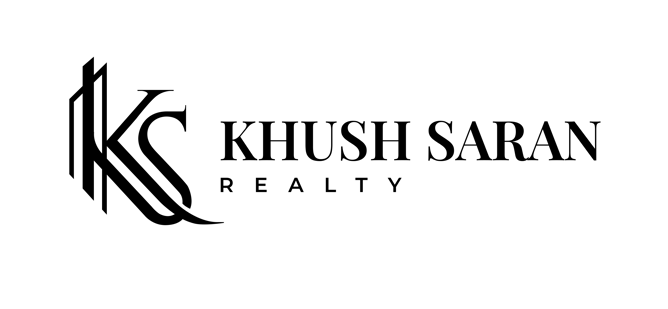10 Essential Tips for First-Time Home Buyers in Ontario
4/5/20254 min read


Understanding the Ontario Real Estate Market
The Ontario real estate market presents a dynamic landscape that is influenced by various economic and social factors. As of October 2023, home prices across the province have shown an upward trajectory, shaped by the demand for housing in both urban and rural areas. Urban centers such as Toronto and Ottawa tend to exhibit higher property values due to increased demand, scarce inventory, and the desirability of the cities’ amenities and employment opportunities. Conversely, rural regions often present more affordable options, albeit with distinct market dynamics. Here, buyers may find properties at a lower cost, but they should consider factors such as accessibility to services and transportation links.
Understanding local neighborhoods becomes imperative for first-time home buyers. Each neighborhood in Ontario often possesses its own character, history, and price trends. By conducting thorough market research, prospective buyers can gain insights into which areas offer the best potential for appreciation while also meeting their lifestyle needs. This includes evaluating proximity to schools, healthcare, public transport, and recreational facilities that may enhance a property’s long-term value.
Moreover, monitoring market fluctuations is crucial for making informed purchasing decisions. The Ontario real estate market can be affected by various external forces that dictate housing supply and demand, including interest rates, government policies, and economic performance. For instance, changes to mortgage regulations or introduction of taxes on foreign buyers can significantly impact local markets. It is essential for buyers to keep a close watch on these trends to navigate their purchase effectively. Advisory resources, such as real estate agents and online platforms, can provide valuable knowledge in staying updated.
In conclusion, understanding the complexities of the Ontario real estate market, including the different dynamics present in urban versus rural settings, is vital for first-time home buyers. Equipped with this knowledge, they can make informed choices that align with their long-term goals.
Setting a Realistic Budget
Establishing a realistic budget is a crucial step for first-time home buyers in Ontario. Before engaging with the housing market, it is essential to take an inventory of your finances, which will help in determining your unique budget for purchasing a home. Begin by evaluating your monthly income, expenses, and any existing debts. This assessment will provide a clearer picture of your financial health and how much you can allocate towards a mortgage.
When calculating total housing costs, consider various components beyond the mortgage payment itself. Property taxes can significantly impact your monthly costs; thus, it is prudent to research the tax rates in your desired area. Insurance is another essential factor that should not be overlooked; homeowners insurance is necessary to protect your investment. Additionally, ongoing maintenance costs need to be factored into your budget, as these expenditures can add up over time.
Determining the down payment is also critical in establishing your budget. In Ontario, the minimum down payment is typically 5% for homes up to $500,000, and a higher percentage for homes beyond that threshold. Be aware that a larger down payment can reduce your overall mortgage costs, ultimately lowering your monthly expenses. For first-time home buyers, it is beneficial to investigate available incentives, such as the First-Time Home Buyer Incentive, which can assist with purchasing costs. Moreover, tax credits for first-time buyers can further alleviate some financial burdens.
Creating a detailed budget that accounts for all these components will ensure a smoother and more informed home buying process. By taking the time to understand your financial situation and utilizing available resources, potential buyers can effectively navigate the real estate landscape in Ontario without undue financial strain. This diligent approach serves as a foundation for making sound investment decisions and achieving homeownership aspirations.
Getting Pre-Approved for a Mortgage
Obtaining a mortgage pre-approval is a critical step for first-time home buyers in Ontario. It serves as a formal indication from lenders about the amount of money you can borrow, facilitating a clearer budget for your house-hunting activities. Being pre-approved can also bolster your position as a serious buyer in the eyes of sellers, giving you an advantage in competitive markets. Sellers tend to view pre-approved buyers as more reliable, leading to a smoother negotiation process.
The process of securing a pre-approval begins with gathering necessary documentation. Lenders typically require proof of income, employment verification, and details about your debts and assets. This information allows them to assess your financial situation and determine how much they are willing to lend. Additionally, it is wise to check your credit score before seeking pre-approval, as a higher score may qualify you for better mortgage rates. Remember that lenders will evaluate your credit history, employment stability, and debt-to-income ratio during their assessment.
In Ontario, a variety of mortgage types are available, each catering to different financial situations. Fixed-rate mortgages provide stability with consistent monthly payments, while variable-rate mortgages may offer lower initial rates that can fluctuate over time. Additionally, some lenders offer specialized loans such as first-time home buyer programs, which may include incentives that can ease financial burdens. It is crucial to consider your long-term financial goals when choosing a mortgage type. Consulting with a mortgage professional can provide valuable insights into which mortgage best aligns with your unique needs and circumstances, enabling you to make an informed decision.
Working with Real Estate Professionals
When embarking on the journey of purchasing a home in Ontario, enlisting the expertise of real estate professionals can be invaluable. A qualified real estate agent not only navigates the complexities of the housing market but also advocates for your best interests throughout the buying process. By leveraging their extensive market knowledge and negotiation skills, agents assist buyers in finding properties that align with their needs and budget.
Finding the right real estate agent is paramount to ensuring a smooth transaction. Potential buyers should begin by seeking referrals from friends or family who have recently purchased homes. Additionally, reading online reviews and checking credentials—such as licensing—can help in vetting prospective agents. An experienced agent is familiar with local market trends, has access to listings that may not be public, and can provide insights into neighborhoods that suit your lifestyle.
Moreover, a real estate agent plays a critical role during negotiations, another essential aspect of home buying. They can help to formulate competitive offers, address contingencies, and counteract any challenges that may arise during the process. This professional guidance can lead to significant savings and ensures that buyers make informed decisions.
In addition to a real estate agent, consulting with a lawyer experienced in real estate transactions can further safeguard your interests. Home buying involves considerable legal considerations and bureaucracy, from reviewing offers to drafting contracts. A lawyer can help buyers understand the documentation involved, mitigate risks, and ensure that all legal requirements are met. Having professional representation alleviates much of the inherent stress associated with the home buying process, allowing buyers to focus on their new investment with confidence.
